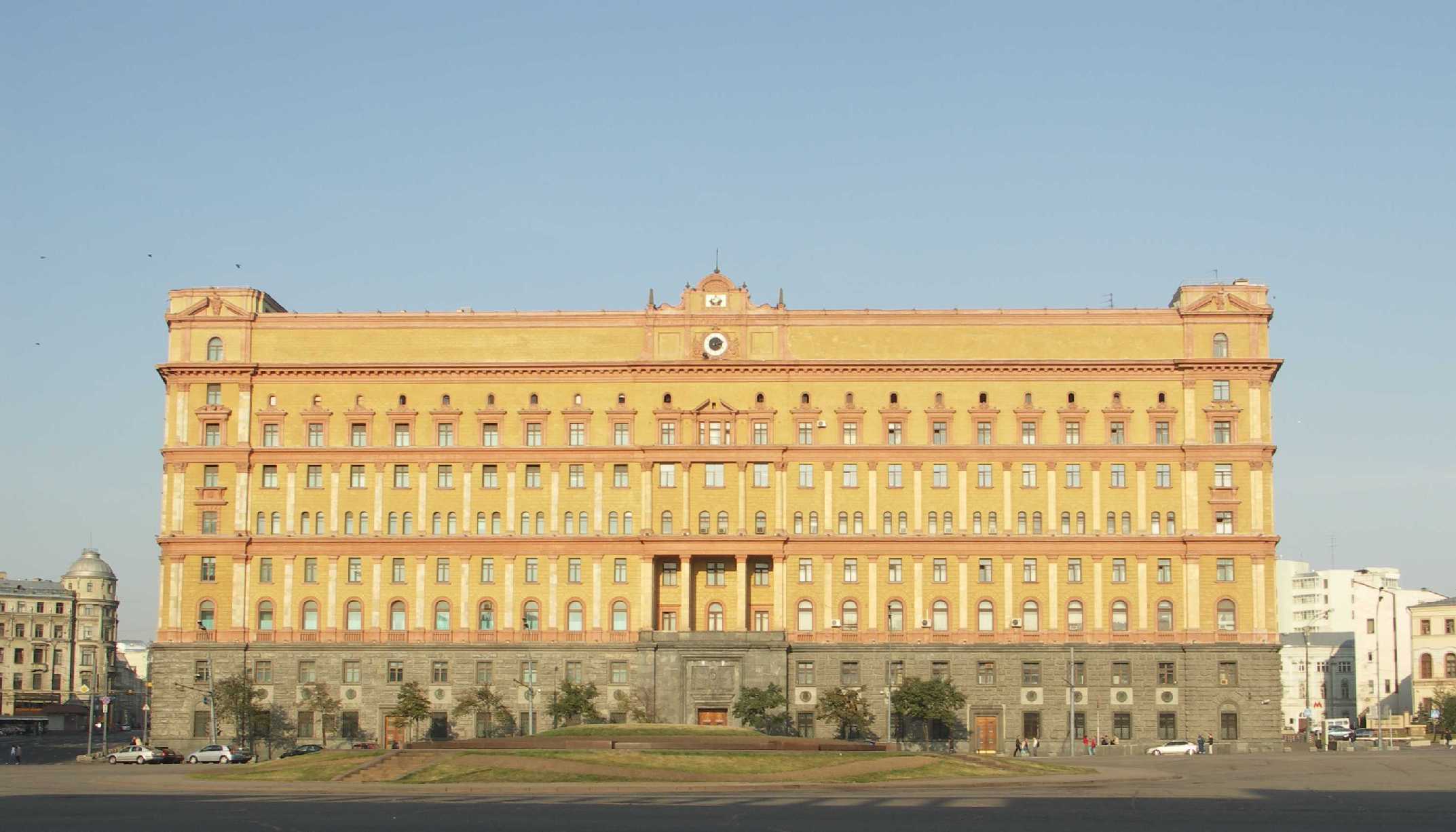The Justice Department Indicted Russian National Alexander Ionov. Why Now?
Ionov has made public efforts to interfere with the U.S. political system for several years. What changed recently that led the Justice Department to indict him?

Published by The Lawfare Institute
in Cooperation With

As shadowy political puppet-masters go, Alexander Ionov is no Machiavelli. A self-proclaimed lawyer, businessman, human rights activist, and—according to U.S. prosecutors—asset of Russia’s Federal Security Service, or FSB, Ionov has made flashy and often trollish attempts to interfere in Western democracies that have been blasted across Instagram, Facebook, Russian media, and occasionally Western media for almost a decade. Ionov’s indictment by the Justice Department in July, therefore, raises a question: Why have prosecutors only now decided to indict him?
The indictment alleges that Ionov, in coordination with two unnamed FSB officers and one “higher level” Russian official, recruited “various US political groups” to help the Kremlin achieve its goals. In 2018, for example, Ionov allegedly helped fund, organize, and design posters for a pro-secessionist rally that took place outside California’s State Capitol building in Sacramento. More recently, Ionov allegedly paid to send members of a Florida-based “political group” to the California headquarters of an unspecified “social media company” (thought to be Meta) to protest content restrictions on posts that supported Russia’s invasion of Ukraine.
Although the names of the individuals and political groups courted by Ionov have been officially disclosed only to a grand jury, the indictment comes a week after the arrests of Augustus C. Romain Jr., more commonly known as Gazi “Black Hitler” Kodzo, and Xavier “Keno” Rushin—both of whom are leaders of Atlanta’s notorious Black Hammer Party. The indictment also appears to be linked to the FBI’s raid last month of the Florida office of the African People’s Socialist Party (Uhuru), another Black nationalist group.
Based on available information, the most likely reason for the timing is the arrest of Kodzo—who appears likely to have been one of the unindicted individuals featured in Ionov’s indictment, and is known to have been Ionov’s associate. It may be that the Justice Department had been watching and building a case against Ionov for some time already, but had chosen not to indict him until recently. The Kodzo arrest may have been the final straw that triggered the decision to move against Ionov—perhaps because it strengthened the case against Ionov, or maybe in part because the Justice Department believed Ionov’s indictment would bolster the case against Kodzo himself. This is, however, only speculation based on publicly available evidence and cannot be confirmed without more information from the Justice Department.
Ionov has a long history of weird, not particularly successful attempts to involve himself in the politics of other countries on behalf of Russia. A towering man with an equally imposing ego, his Instagram profile is strewn with photos of him hobnobbing with international political figures, such as former Iranian President Mahmoud Ahmadinejad and the North Korean ambassador to Russia. Despite seemingly attempting to cultivate a James Bond-esque persona—often posing with cigars, guns, flashy cars, and glamorous women—the image he conjures is that of a globetrotting Forrest Gump, frequently appearing in the background of big news stories and historical events.
In 2013, he popped up in Damascus, where he presented Syrian President Bashar al-Assad with a certificate bestowing honorary membership with the Anti-Globalization Movement of Russia (AGMR), an organization Ionov founded the previous year to “protect traditional moral values and ensure all aspects of Russia’s security,” according to its site. While the exact nature of Ionov’s involvement in Syria remains unclear, he recently told Bloomberg and the Russian news media that he “killed extremists in Syria while fighting alongside Hezbollah brigades,” and appeared to admit to helping “almost 60 Russian companies in Syria” bypass U.S. sanctions by using private companies as intermediaries for “all transactions.”
Other stops in Ionov’s anti-globalization tour included Venezuela, where he claims to have cultivated ties with the country’s political elite—such as dictators Nicolas Maduro and the late Hugo Chavez, who was accompanied by members of AGMR during his trip to Moscow in 2013, according to independent Russian news site Meduza.
In the United States, Ionov is perhaps best known for flying the leaders of Texas and California pro-secessionist groups to Moscow in 2015 and 2016 for AGMR conferences. As noted in his indictment, the flights and conferences were funded partly by a Russian presidential charity overseen by Vladimir Putin. Ionov later received a personal letter from the Russian president praising his “work to strengthen friendship between peoples,” according to Vice.
Also mentioned in the indictment is Ionov’s crowdfunding campaign that took place in 2018 and 2019 and was aimed at meeting the legal costs for convicted Russian agent Maria Butina’s U.S. lawyers. As part of his campaign, Ionov created a donation-based website and published a video of Butina pleading for financial help from prison. The campaign may have violated Treasury Department sanctions when it accepted money from Russian propagandist Alexander Malkevich, who has been accused of working for Kremlin troll factory kingpin Yevgeny Prigozhin.
One of the most puzzling chapters in Ionov’s career is his role as the vice president of the International Committee for the Protection of Human Rights, ostensibly a French “human rights organisation” (which we have written about in Foreign Policy and Bellingcat). Known by its French acronym, CIPDH, this organization appears to have links to individuals who have been implicated in crimes taking place across the globe—from identity theft and attempted murder to illegally hoarding billions of dollars in cash that once belonged to fallen Libyan dictator Moammar Gadhafi. Ionov has been linked to CIPDH since at least July 2018, when CIPDH presented a “Medal of Honour” to the “famous Russian human rights activist.”
Though CIPDH is mentioned only briefly in the indictment, Ionov seemingly used the organization as a way to ingratiate himself with a member of at least one of the unindicted U.S. political groups: He appears to have sent an email on behalf of CIPDH inviting this individual to become “our expert on protection of human rights of Russian nationalities who were arrested by the US on the territory of third countries.” (The Black Hammer organization later issued a press release announcing that CIPDH had “join[ed] the fight against Black Genocide!”). In the email, allegedly sent in late 2018, Ionov described CIPDH as a “partner of the UN”—which has since denied any affiliation. However, that hasn’t stopped Ionov from posting multiple photos of himself on Instagram posing with vehicles emblazoned with the U.N.’s initials.
In addition to providing cover for Ionov’s alleged misdeeds, CIPDH has also given him false credibility in interviews with state-friendly Russian news media, allowing Ionov to propagandize about societal problems in the U.S. while boosting his own profile back home. In one interview with RT from February 2018, he even claimed to have coined the term “Black Lives Matter” during a 2014 Skype call with protesters from Ferguson, then in turmoil after the fatal shooting of 18-year-old Michael Brown by police.
However, Ionov’s relationship with RT soured quickly, when in June 2018 he falsely told the site that Grigory Rodchenkov, the whistle-blowing former head of Russia’s national anti-doping laboratory, had attempted to kill himself in Washington. Ionov had seemingly sourced the false claim from Panorama, a satirical news site that has been dubbed “Russia’s answer to ‘The Onion,’” according to the Meduza website. In response, RT publicly disavowed Ionov, stating: “The human rights activist has repeatedly shared important and truthful information with RT, but the cost of a mistake is too high. We are sorry, but we will not trust Mr. Ionov anymore.”
The coronavirus pandemic curtailed Ionov’s globetrotting significantly. In 2021, he pivoted into selling medical devices and disinfectants under the brand “Sansafe” through his company Milion LLC (ООО «Милион»).
Taken together, Ionov’s history presents a picture of an opportunist and a self promoter who attaches himself to the fringes of existing political issues, rather than being someone who drives them. His efforts at political influence are prolific, but as yet there is little evidence to suggest they have been effective to any significant degree. The U.S.-based groups he is purported to have influenced covertly are extremely fringe and completely unknown to all except a very small community of activists.
Most of the activity detailed in the indictment took place several years ago, much of it available as open source information on social media. But the key to the indictment is the link to the FSB, which appears likely to have been identified through compromising Ionov’s email account or phone. The alleged role that FSB agents played in directing Ionov’s activities creates the basis for charging him with conspiring to have U.S. citizens act as illegal agents of the Russian government.
While more information about the investigation may still surface, the most obvious trigger is the arrest of Gazi Kodzo—the leader of what appears likely to be one of the unindicted groups Ionov is alleged to have influenced.
In late July 2022, about a week before Ionov’s indictment, Kodzo was arrested when the body of an 18-year-old man was found dead of a gunshot to the head in Kodzo’s home. Kodzo was charged with two counts each of aggravated sodomy, conspiracy to commit a felony, false imprisonment, kidnapping, aggravated assault, and criminal street gang activity.
Black Hammer, which appears to be one of several unnamed and unindicted organizations referenced in the Ionov indictment, has been characterized by ex-members as an emotionally, psychologically, and, at times, physically and sexually abusive cult centred around Kodzo.
Set against the context of Kodzo and Black Hammer, the indictment of Ionov takes on a different hue. It is hard to imagine a more ineffectual mechanism for exerting political influence in the United States than seeking to connect with a tiny fringe personality cult led by Kodzo—a man who has been denounced by his own former compatriots as a “clout demon,” a sexual predator, and a psychopath. Ionov’s decision to engage with and support Black Hammer suggests a failure of good judgment, rather than a canny strategy.
Some of the political actions that, according to the indictment, Ionov funded for Black Hammer were almost comically small. In March, for example, Ionov allegedly paid return airfares to fly five members of Black Hammer between Atlanta and San Francisco to stage a miniscule protest outside the headquarters of social media company Meta.
Alleged members of the Black Hammer organization protest outside of the Meta headquarters in March 2022. (Source: Readovka)
If the funds for this action did ultimately come from the FSB, perhaps it should be asking whether it’s really getting its money’s worth.
While less extreme and chaotic than Black Hammer, the likely candidates for the other groups referenced as unindicted co-conspirators in the indictment are similarly small, fringe organizations that have failed to have a substantial political impact or develop any significant public profile. Indeed, the indictment itself records that at least one of the unindicted groups had told Ionov that they struggled to get media coverage without his assistance.
It is possible there is more to come in this investigation. Raids have been conducted on the offices of the Uhuru group, which appears to be one of the listed unindicted co-conspirators, although as yet no arrests have been made. Based on the evidence to date, however, it would appear that Ionov’s influence efforts have proved to be largely impotent.
We should refrain from drawing too many conclusions about the political influence capabilities and common sense (or lack thereof) of the FSB based on the Ionov case. As the indictment indicates, Ionov was in contact with members of the FSB but is not part of the FSB himself. It is not clear how seriously the FSB took Ionov’s endeavors (although in 2017 he did receive a certificate of merit from FSB Director Alexander Bortnikov for organizing a volleyball competition for veterans of Russia’s intelligence services, according to Meduza). It may be that the FSB cooperated with Ionov opportunistically, throwing the equivalent of a few bucks toward his efforts just to see if it might pay off. The indictment shows that at least once, FSB agents told Ionov that they were dissatisfied with the small size and lack of impact of a protest put on by one of the unindicted groups at Ionov’s direction.
Ionov’s history paints a picture of a man constantly looking for ways to raise his own profile and curry favor with Russia’s political elite through publicizing his displays of patriotism. Being indicted by the U.S. may in fact prove to be something of a feather in his cap. His immediate response to being sanctioned was to call a press conference in the Moscow Ritz-Carlton. He has since appeared on Russian media and given statements to Western media including CNN.
Based on the evidence, he is not, however, a skilled or subtle operator when it comes to foreign interference. After almost a decade, based on available evidence, the sum total of his efforts to influence the United States appears to amount to a number of relatively small protests, occasional media coverage, and relationships with a handful of fringe groups that remain completely unknown to the vast majority of the American public.




.png?sfvrsn=48e6afb0_5)

